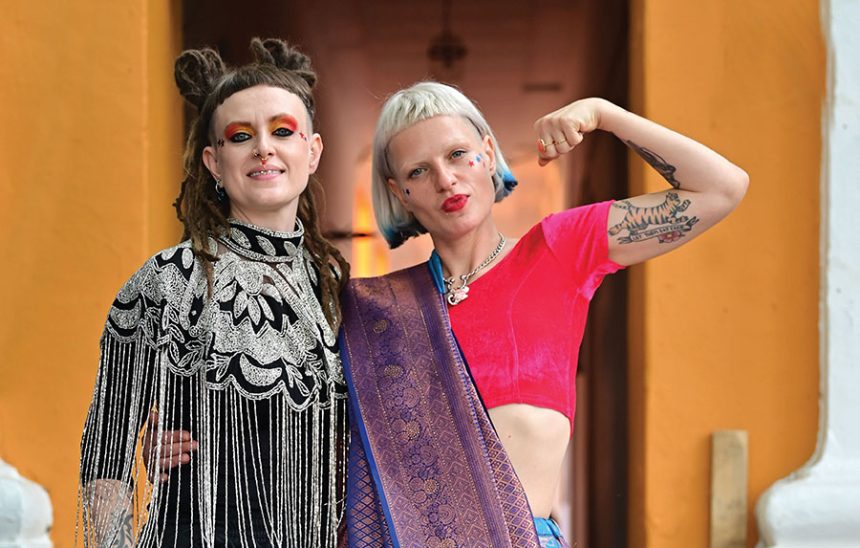Valentina and Nicole Bertani coming-of-age, dark comedy film ‘Mosquitoes’ has a mix of mischief, nostalgia, and queer love as seen through the eyes of girls growing up in the 90s
VINIKA VISWAMBHARAN
The first thing that strikes one about Valentina and Nicole Bertani’s new film is obviously it’s intriguing title. The sister duo chuckle knowingly. “We chose ‘Mosquitoes’ because, from the adults’ point of view, children are disturbing and annoying like mosquitoes,” they explain. “They are everywhere and want to bite someone.” But the analogy doesn’t stop at harmless annoyance. “Mosquitoes are very noisy, and the girls in our film make a lot of noise in the neighbourhood. They are disturbing, yes, but also inconceivably dangerous.”
Set in the late 90s, ‘Mosquitoes’, or ‘La Bambine’ in Italian, captures the world entirely through the eyes of its young protagonists. The story follows Linda and her friend Eva as they navigate small-town life, rich with whimsy, luxury, and subtle rebellion.
Asked how they translated the girls’ experiences so vividly to screen, they respond with nostalgic fondness: “We lived it. The girls are very similar to what we were with our best friend. Everything that seems incredible in the film is real. Our mother was a doll maker before being a nurse, our father was a doctor who couldn’t really communicate with us, and we had a queer babysitter named Carlino. And yes, we had a huge, incredible dog!”
The real-life inspiration extends to the locations as well. Filmed across Switzerland, Ferrara, and small Italian towns, the settings are more than just backdrops. “The mentality of a small town is very different from a big city,” the directors point out. “In a small town, it’s very difficult to find open-minded people. We wanted to represent the experience we had growing up in a tiny city in northern Italy.”
The film’s depiction of queer identities is both subtle and revolutionary. “In our family, being openly queer was never an option,” they explain. “For children, it wasn’t important. We wanted to show a queer man in 1997 because society wasn’t ready to understand or accept homosexual men at that time.”
This inclusivity extends to the younger characters as well. Azzurra, one of the girls, is depicted grappling with feelings for Eva, capturing the tender, confusing, and sometimes unnameable nature of queer attraction. “If we show queer people and queer feelings in movies, audiences can understand that it’s normal. Love is love. Only hate is horrible.”
The film’s visual style is another testament to its authenticity. Shot in a 1:1 aspect ratio, reminiscent of 1919 television formats and Polaroid photographs, the choice is deliberate. “We loved the squared format,” says Valentina. “It’s immediate, yet you never know exactly how your face or frame will turn out. It mirrors the way we process memories, slowly, carefully, with a little suspense.”
The sisters’ backgrounds shaped the film’s direction. Valentina, who studied cinematography in Rome, took charge of camera work, lighting, and directing actors, while Nicole, trained in graphic design and art direction in Milan and London’s Central Saint Martins, focused on colour palettes, costumes, and set design. On set, the collaboration was fluid yet defined.
The directors hope ‘Mosquitoes’ resonates with audiences globally. “It’s a different culture, a different way to perceive childhood and love, but the core is universal,” they says. “Children can understand every kind of love, every kind of fact, every kind of taboo.”



